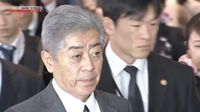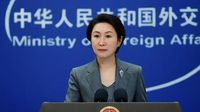As Japan prepares to host a trilateral meeting with China and South Korea on Saturday, March 22, 2025, the dynamics of East Asian relations are set to come under the spotlight. The meeting will feature Japanese Foreign Minister Hayashi Yoshimasa, Chinese Foreign Minister Wang Yi, and South Korean Foreign Minister Cho Tae-yul, marking a significant step towards enhancing cooperative measures among these three pivotal nations.
In recent statements, Hayashi expressed his hopes for the meeting, emphasizing the importance of candid dialogues to foster constructive cooperation among neighboring countries. “We hope to frankly exchange views and strengthen constructive cooperation,” stated Hayashi, as reported by Japan's Ministry of Foreign Affairs. This comment underscores Japan's proactive stance in seeking collaborative frameworks to address common challenges in the region.
On the Chinese side, there has been a call for Japan to handle sensitive issues judiciously to maintain healthy and stable bilateral relations. Mao Ning, spokesperson for the Chinese Ministry of Foreign Affairs, reported that the next economic dialogue aims to enhance partnerships in macroeconomic policies, identifying critical areas for cooperation between the nations. “The upcoming economic dialogue with Japan aims to strengthen macroeconomic policy partnerships and outline key areas for cooperation,” Mao noted, emphasizing the mutual benefits that can arise from such collaborative efforts.
This trilateral gathering occurs amidst broader concerns in East Asia regarding peace and regional security. Japan, China, and South Korea are viewed as major neighbors with significant responsibilities. Hayashi highlighted this responsibility, asserting the need for the countries to work together to stabilize the region amidst rising geopolitical tensions.
The importance of mutual interests is clear; each country faces challenges that affect their ability to cooperate effectively. Relations between Japan and China, in particular, have been fraught with historical tensions and geopolitical disputes, notably over issues concerning Taiwan and maritime security. However, officials are hopeful that the upcoming discussions will provide a platform to address these concerns head-on.
To bridge these underlying tensions, the high-level economic dialogue between Japanese and Chinese ministers—occurring for the first time in several years—will focus on enhancing economic interdependencies which can pave the way for broader political collaboration. This dialogue is not only about trade but also encompasses critical global issues such as climate change and regional security frameworks.
In a world where relationships between nations can often be strained, the forthcoming meetings may represent a turning point in Japan-China relations. Both countries recognize the necessity of managing key cooperation challenges effectively, particularly in light of ongoing global issues that require a unified response. By focusing on their shared strategic interests, both nations can potentially chart a course toward stable and beneficial relations that will promote peace and prosperity in the entire region.
The trilateral meeting is held at a crucial time as countries in East Asia confront a series of economic and security challenges that impact not only their own nations but the global community at large. By fostering open lines of communication and emphasizing cooperation, Japan, China, and South Korea aim to cultivate a balanced approach to international relations that reflects the complexities of their historical ties and future aspirations.
As the leaders gather in Tokyo, the world will be watching closely to see if substantive agreements can be reached that prioritize cooperation over conflict and shared prosperity over isolationist tendencies. The implications of these dialogues are profound, not just for the nations directly involved but for global politics, economics, and environmental policies moving forward.





